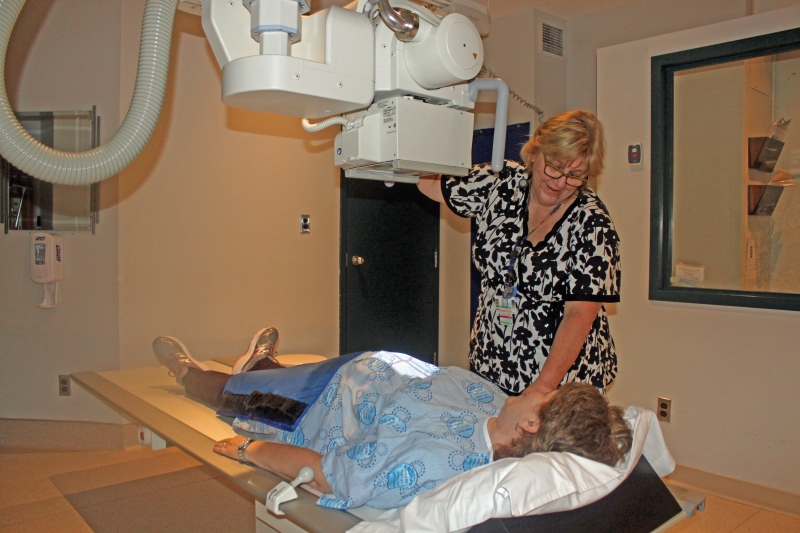

Questions & Answers
What exactly will all hospitals report on December 30th?
On the last day of each quarter beginning December 30, 2008, SFMH along with all Ontario hospitals will be required to publicly report on their own websites:
What are hospital-acquired infections?
Sometimes when patients are admitted to the hospital, they can get infections. These are called hospital-acquired infections. In the case of MRSA bacteremia, this may mean that symptoms began 72 hours after admission to the hospital; or that the infection was present at the time of admission but was related to a previous admission to that hospital within the last 72 hours.
What is Staphylococcus aureus (staph)?
Staphylococcus aureus, often referred to simply as "staph," are bacteria commonly carried on the skin or in the nose of healthy people. Approximately 25% to 30% of the population is colonized (when bacteria are present, but not causing an infection) in the nose with staph bacteria. Sometimes, staph can cause an infection. Staph bacteria are one of the most common causes of skin infections. Most of these skin infections are minor (such as pimples and boils) and can be treated without antibiotics (also known as antimicrobials or antibacterials). However, staph bacteria also can cause serious infections (such as surgical wound infections, bloodstream infections, and pneumonia).
What is MRSA (methicillin-resistant Staphylococcus aureus)?
Some staph bacteria are resistant to antibiotics. MRSA is a type of staph that is resistant to antibiotics called beta-lactams. Beta-lactam antibiotics include methicillin and other more common antibiotics such as oxacillin, penicillin and amoxicillin. While 25% to 30% of the population is colonized with staph, approximately 1% is colonized with MRSA.
What is MRSA bacteremia?
MRSA bacteremia occurs when MRSA enters the bloodstream. This can result in serious illness.
What are the risk factors for MRSA infection?
Risk factors for MRSA infection being colonized with MRSA, recent hospitalization or stay in another health care facility, presence of an indwelling device (e.g. catheter), prior treatment with antibiotics, prolonged hospital stay, stay in an intensive care or burn unit, surgical wound infection and close proximity to a colonized person. MRSA can also be transmitted from mother to child through breast milk.
How is MRSA treated?
Patients who are ‘colonized’ with MRSA, but are not exhibiting an infection may not need treatment. If a patient has an infection caused by MRSA, they will be treated with antibiotics.
How does MRSA spread?
MRSA is spread from one person to another by contact, usually on the hands of caregivers. MRSA can be present on the caregiver’s hands either from touching contaminated material excreted by the infected person or from touching articles contaminated by the skin of a person with MRSA, such as towels, sheets and wound dressings. MRSA can live on hands and objects in the environment such as door handles, bedrails and stethoscopes.
What precautions are used to prevent the spread of MRSA in the hospital?
If you are in the hospital and have MRSA, you will be put on special precautions for the duration of your stay or until tests indicate that you no longer have MRSA. You may be placed in a single room and your activities outside of your hospital room may be restricted. A sign will be posted on your door to remind others who enter your room about the special precautions. All health care staff who enter your room will wear gloves, a gown and a mask and will dispose of these before they leave the room. Visitors will also be required to wear this protective equipment. The room and the equipment in the room will be cleaned and disinfected regularly. Everyone MUST clean their hands when leaving your room through the use of soap and running water or by using alcohol-based hand rub for at least 15 seconds.
How does SFMH control the spread of MRSA?
In order to prevent the spread of MRSA, we engage our housekeeping team to ensure that they are following the best practices for cleaning in situations where patients are identified with MRSA. As well, we are strongly encouraging our staff to enhance their hand hygiene practices.
Does SFMH track MRSA cases?
Looking closely at the MRSA cases is an important step in making sure you are safe. This is called surveillance and it allows us to know whether there is a problem in the hospital and to understand how big the problem is. We track all MRSA cases in our hospital and as soon as a case is identified, we bring in the resources needed to stop the possibility that it might spread to others.
What is SFMH doing to improve patient safety?
SFMH has a patient safety program in the hospital to make sure that all practices are at the highest level possible to keep you safe. This includes:
Resource: Centers for Disease Control and Prevention